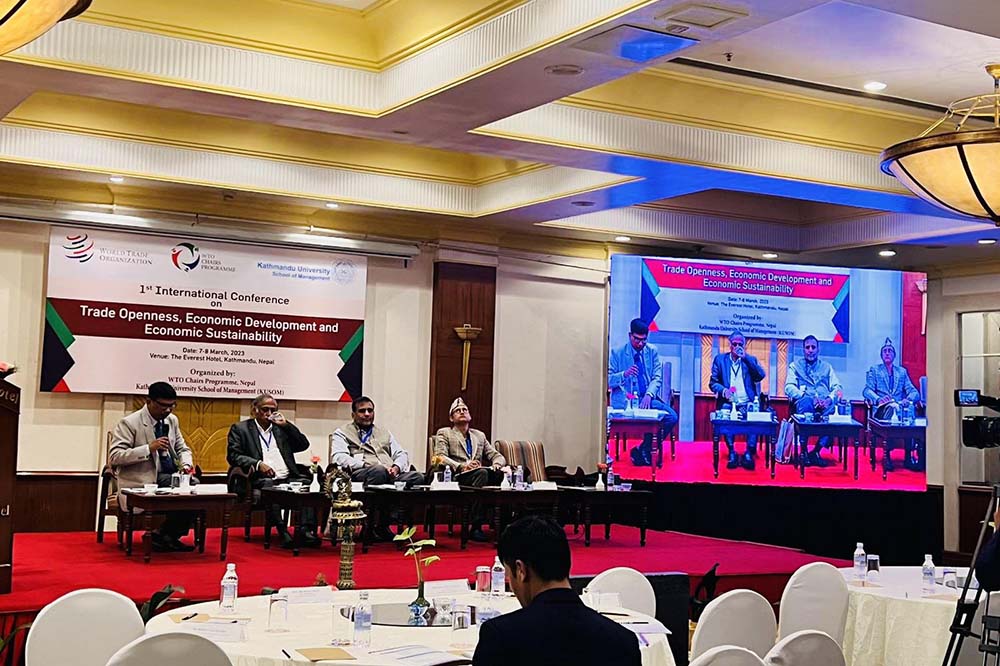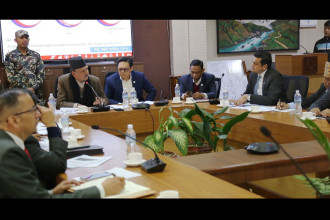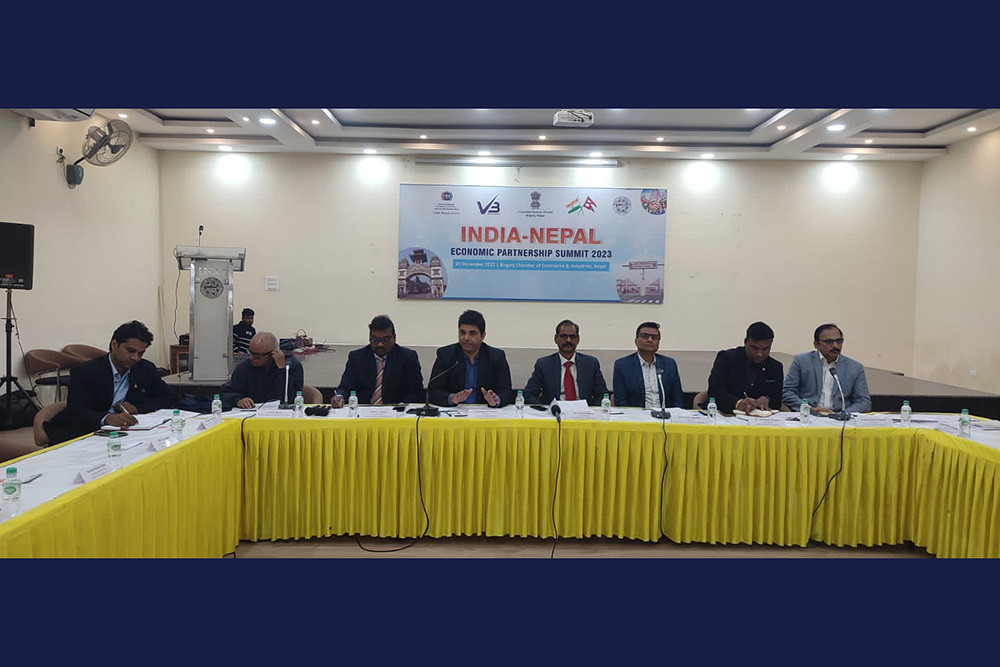
KATHMANDU: Experts in the economic sector participating at an international conference voiced that there is no alternative to open trade citing that cent per cent self-reliance is not possible in today's world.
At a two-day first international conference organised by the Kathmandu University School of Management (KUSOM) in Kathmandu on Tuesday, the economic experts emphasized the importance of finding the reason why the country is more import-oriented even after two decades of its entry into the World Trade Organisation (WTO) and suggested developing appropriate policies.
Prof Dr Raghunath Subramanyam, Chairperson of South Asia Chapter Of The Academy of International Business (AIB) under Indian Institute of Management Bangalore (IIMB), said open trade offers opportunities in itself. "It offers an opportunity to develop competitive ability while the use of technology increases the quality of products," he opined.
Subramanyam emphasized that Nepal should increase production based on its own sustainable resources. Any country has a specific brand, he said and suggested Nepal could identify goods and services based on local resources and compete in the world market. Along with the improvement of the business system, information technology (IT) can be used for further achievements, he said.
According to him, Nepal can work in digital services, tourism and other sectors to fulfil its goal of business diversification and increasing exports.
Former Commerce Secretary of the Government of India Anup Wadhawan opined that any country adopting open trade will advance itself by taking advantage of a developed and competitive economy.
According to him, it is impossible to be cent per cent self-sufficient at present. "For this reason, open trade is not an option, at least for those who want creativity in business," he said.
Despite multifaceted economic crises and their effects on the world, the right and easy solution can only be found in an open economy, he claimed.
He said that due to the Covid 19 pandemic, Russia-Ukraine war, US-China trade conflict, new dimensions have been seen in international trade and its effects will continue to be seen over time.
Elizabeth L Rose, Research Chair Professor in Business Policy and Strategy of Indian Institute of Management Udaipur (IIMU), mentioned that small and medium industries are the foundation of any economy and stressed the importance of small and medium industries even though multinational companies have come to the scene in international trade.
She emphasized the importance of developing small and micro enterprises that produce their own creative products.
Bhola Thapa, Vice-Chancellor of Kathmandu University, said Nepal is constantly suffering in the field of trade and the country's trade is risky due to the high trade deficit. He said the country’s current trade policy has resulted in failure in the search for products and markets. He expressed his belief that this conference will be successful after reviewing such failures for appropriate policy identification. “As a university, we are working on the development of skilled human resources. We are still paying attention to manpower development according to the needs of the new era," he said.
Dr Werner Zdouc, Director of the knowledge management Division, WTO Chairs Programme-2023 said that the WTO will assist in the necessary factual research, policy review, and human resource development for the development of the business capacity of the member states. He also informed that World Chairs programme is being implemented in Nepal.
Dean of KUSOM and President of WTO Chairs Programme-Nepal Professor Dr Devi Prasad Bedari said that although globalisation is good for any economy, there are also some challenges for a country like Nepal.
"We need to be more creative because Nepal is already weak in industrialisation and there are many challenges such as the need to develop appropriate education and training, skills according to the market," he said and added, "There will be academic and practical work on similar topics under the WTO Chairs Programme."
Professor Achyut Wagle, Registrar of KU and Co-chair of the WTO Chairs Programme, suggested that Nepal should give priority to trade diversification mentioning that 85% of the country's trade is taking place only with its two neighbours — India and China.
He said that business diversification is important because big neighbours have used trade as a strategic item to fulfil their geo-political interests in history. He said Nepal is weak in goods export as well as in service trade. "Nepal is an importer in higher education, higher health services and international air services," Wagle said.
Further, he said that many policies adopted to increase exports after Nepal joined the WTO in 2004 have failed. Since these policies have failed to increase productivity and reduce trade deficit, academic and practical research is needed, added Prof Wagle.
This international conference on trade openness, economic development, and economic sustainability concluded on Wednesday.
READ ALSO:
Published Date: March 8, 2023, 12:00 am
Post Comment
E-Magazine

Click Here To Read Full Issue
RELATED B360 National




